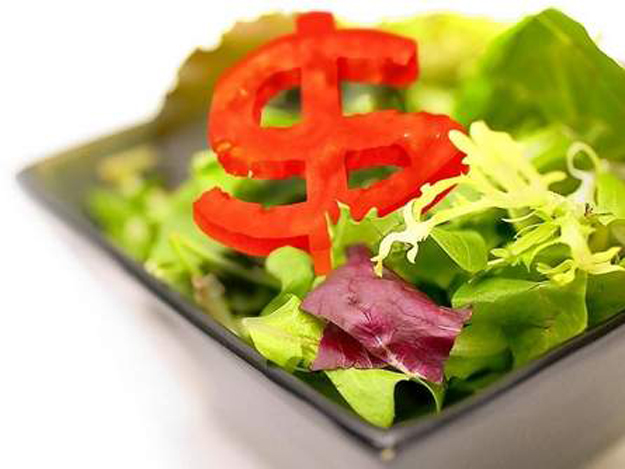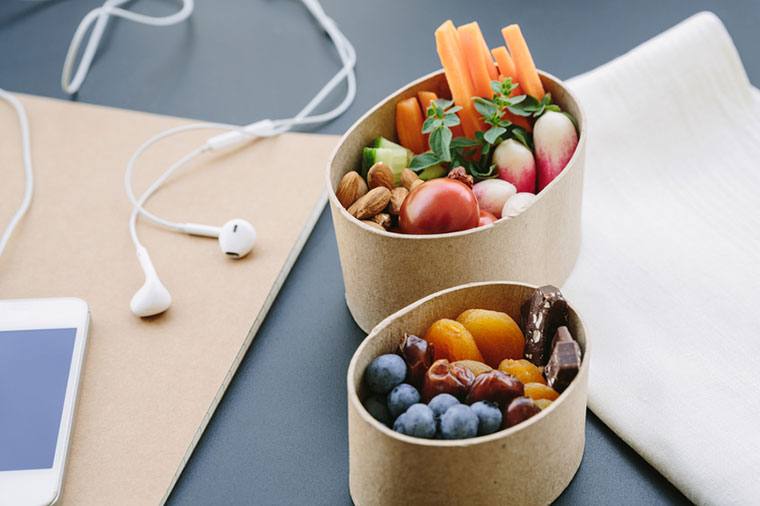On a budget, and worried about increased grocery bills?
Truth is – eating healthier will probably save money overall, because you will be purchasing less takeaway, and making more meals from scratch. However, your grocery bills are likely to increase – and this can seem overwhelming!
To help ease you into heavier grocery demands, we’ve compiled 8 tips for healthy eating on a budget.
- Select recipes with fewer ingredients
During your healthy eating journey, you may be experimenting with new recipes using fresh produce. Why not select meals with fewer in ingredients, to reduce your costs? Or, consider what ingredients you already have in your fridge and pantry, and select recipes to compliment this. - Shop seasonally
Fruits and veggies in season will be cheaper to purchase, so opt for meal ideas and snacks that feature seasonal produce. For example, spring vegetables include leeks, Asian greens, beetroot, broccoli, peas, asparagus, silverbeet and cauliflower. Fruits include avocadoes, apples, mandarins, strawberries, rhubarb, pears and bananas. If you select a recipe online/in a book with non-seasonal ingredients, can you make a substitution?Also, make sure you check out your local farmer’s markets, and larger fresh food markets. Some greengrocers will have daily specials on seasonal fruits and vegetables.
- Buy home brands where you can
Sure – for certain products (i.e. breads, crackers and cereals), there may be key nutritional differences between the ‘big brands’ and the supermarket home brands. However, for wholefood products such as rolled oats, natural yoghurt, frozen berries and nuts – there is little or no difference. So why not save yourselves a dollar (or two)! - Choose recipes using mince
Mince is usually the cheapest way to buy meat and chicken, gram for gram. Mince-based recipes are usually great for cooking in bulk and freezing too, reducing the number of times you need to cook in a week. You know what that means – more time to hit the gym and/or spend time with family and friends! - Incorporate plant-based meals
Including vegan or vegetarian meals in your menu plan will definitely save you some hard-earned cash. And – studies have shown that transitioning towards a more ‘plant-based’ diet carries many health benefits, including reduced risk of certain cancers and metabolic diseases. We suggest looking for plant-based meals that include at least 15-20g of protein per serve, so that you feel full after eating. - Make your own yoghurt
If you devour yoghurt like we do, you’d recognize how expensive this habit can be! Specifically, 1kg of Greek yoghurt can set you back at least $5-7. If you have time on your hands, you can make your own yoghurt for less than $2 per kilogram, using milk and a starter culture. - Keep your eye out on specials
This is an obvious one, and applies to all ingredients – from vegetables through to meats. With regards to meats on special, don’t be turned off if the impending use-by date. If you don’t plan on using this product until later in the week, stick it straight in the freezer straight away and defrost on the day you wish to cook it. When you freeze raw meats, the use-by date no longer applies – in fact, you can extend their ‘life’ for up to 6 months! - Don’t feel pressured to buy organic
Organic products are always more expensive – that is, unless they are on special. And, whilst organic products may be more environmentally-friendly (note – this is not always the case!), the jury is out as to whether there are any nutrition or health benefits for the extra dollars you spend. If you are on a budget, consider whether it’s worth spending the extra on buying organic. If you still prefer to buy organic, perhaps you can select some organic products and not others (i.e. meats but not vegetables), or make cost savings elsewhere using out tips above.



